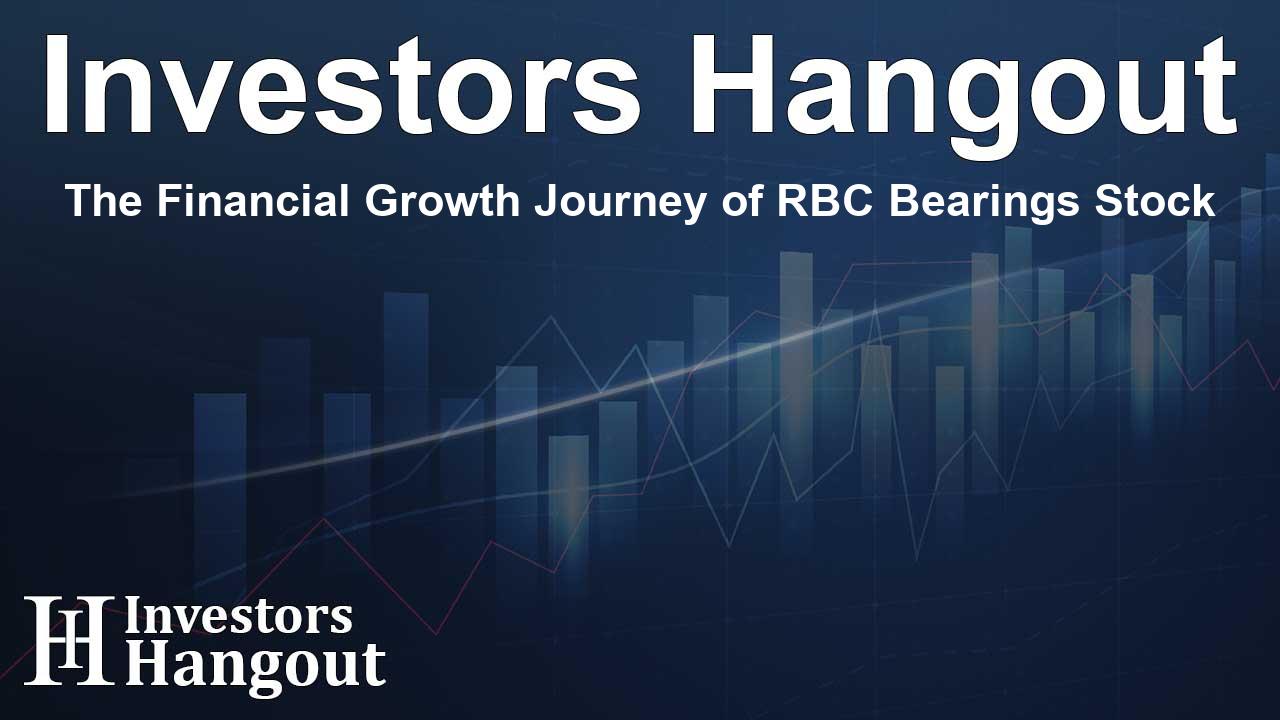The Financial Growth Journey of RBC Bearings Stock

Understanding RBC Bearings' Stock Performance
RBC Bearings (NYSE: RBC) has showcased remarkable resilience and growth in the stock market over the past five years, standing out with an annual outperformance of 10.86% compared to market averages. This impressive performance translates into an average annual return of 25.5%, highlighting the company's strong position in its sector.
Investment Impact: A Look at Returns
For those who invested $1000 in RBC stock five years ago, the potential returns are substantial. As of the latest figures, that initial investment would now be worth approximately $3,091.16, taking into account the current stock price of $378.54. This increase demonstrates not only the growth of the stock but also the effect of compound growth on initial investments.
Decoding the Growth Factors
Several factors contribute to RBC Bearings' consistent stock market performance. From innovative product lines to a commitment to strong operational excellence, the company has built a reputation for quality. Continuous improvements and expansions have allowed it to capture new markets, which further bolsters investor confidence.
The Role of Compounding in Investment Success
The journey of RBC Bearings serves as a compelling case study in the power of compounded returns. The significant difference between a simple return and a compounded return can profoundly impact an investor's wealth over time, emphasizing the importance of long-term investing strategies.
Market Dynamics and Future Potential
As RBC Bearings continues to innovate and improve its offerings, the future looks promising. Investors are keenly watching the company's strategic decisions and market expansion, ready to capitalize on potential growth opportunities. With strong fundamentals, the company is well-positioned to benefit from both domestic and international trends.
Conclusion: A Strong Investment Choice
In an era where market fluctuations are common, RBC Bearings has proven to be a stable investment choice. Those who recognized its potential early on have likely seen their investments grow significantly. The lesson here is clear: smart, long-term investing can yield impressive returns.
Frequently Asked Questions
What is the current market capitalization of RBC Bearings?
The current market capitalization of RBC Bearings is approximately $11.95 billion.
How has RBC Bearings performed compared to market averages?
RBC Bearings has outperformed the market by 10.86% on an annualized basis over the past five years.
What would a $1000 investment in RBC stock be worth today?
A $1000 investment in RBC stock five years ago would be worth about $3,091.16 today, based on recent pricing.
What factors have contributed to RBC Bearings' stock growth?
The growth can be attributed to strong product offerings, operational excellence, and strategic market expansions.
Why is compound growth important for investors?
Compound growth is crucial because it reflects the exponential increase in investment returns over time, significantly enhancing wealth accumulation.
About The Author
Contact Logan Wright privately here. Or send an email with ATTN: Logan Wright as the subject to contact@investorshangout.com.
About Investors Hangout
Investors Hangout is a leading online stock forum for financial discussion and learning, offering a wide range of free tools and resources. It draws in traders of all levels, who exchange market knowledge, investigate trading tactics, and keep an eye on industry developments in real time. Featuring financial articles, stock message boards, quotes, charts, company profiles, and live news updates. Through cooperative learning and a wealth of informational resources, it helps users from novices creating their first portfolios to experts honing their techniques. Join Investors Hangout today: https://investorshangout.com/
The content of this article is based on factual, publicly available information and does not represent legal, financial, or investment advice. Investors Hangout does not offer financial advice, and the author is not a licensed financial advisor. Consult a qualified advisor before making any financial or investment decisions based on this article. This article should not be considered advice to purchase, sell, or hold any securities or other investments. If any of the material provided here is inaccurate, please contact us for corrections.
